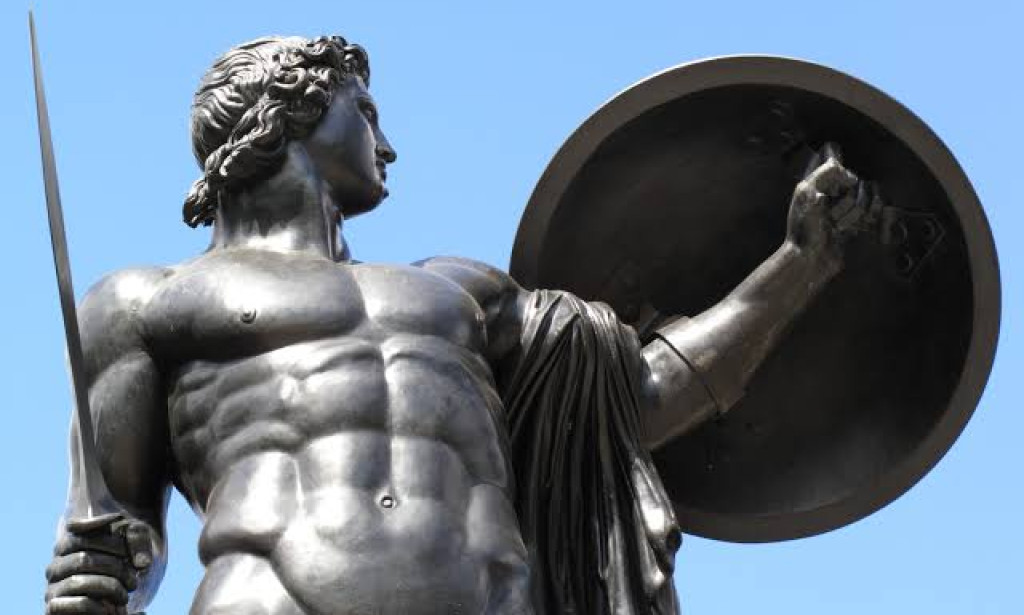Born of the mortal king Peleus and the sea-goddess Thetis, Achilles was marked by fate before he even drew his first breath. The gods themselves feared what his future might bring so much so that Zeus and Poseidon were dissuaded from marrying Thetis after a prophecy warned that her son would surpass his father in power. Instead, she was given to Peleus, a mortal, ensuring Achilles' greatness would be bound to the mortal realm and thus, to death. From birth, Thetis tried to protect him. Some say she burned away his mortality by fire, others that she dipped him in the River Styx, leaving only his heel vulnerable a small flaw that would ultimately seal his fate.
Raised in the wilderness by the wise centaur Chiron, Achilles was trained in everything from swordplay to the arts, growing into a warrior of unmatched skill. His strength was likened to Ares and his speed to lightning. As a youth, he formed deep bonds with Phoenix and the gentle-hearted Patroclus, the latter of whom became his closest companion. Their bond would come to define Achilles’ story as much as any war or prophecy. Despite his divine lineage and nearly invincible body, it was his human heart that made him legendary a heart capable of love, rage, grief, and pride.
When whispers of the TrojanWar stirred across Greece, Thetis, desperate to save her son from his destined death, disguised Achilles as a girl and hid him among the daughters of King Lycomedes. But fate cannot be fooled for long. The cunning Odysseus discovered him, and Achilles, drawn by the call of glory, joined the Greeks, commanding his elite warriors, the Myrmidons. Despite not being bound by oath to fight for Helen’s honor, he plunged into war not for duty, but for destiny.
In the final year of the war, chronicled in Homer’s Iliad, a clash of egos ignited between Achilles and Agamemnon, who dared to take Achilles’ prize, Briseis. Deeply insulted, Achilles withdrew from battle, pleading with his mother to let the gods humble the Greeks. And humbled they were. Only the death of Patroclus, who entered battle in Achilles’ armor to save their comrades, could bring the great hero back. Overcome with grief and fury, Achilles rejoined the war, killing Hector in a brutal duel and dragging his corpse for days, until the grief of Hector’s father, Priam, moved even his rage.
But even heroes cannot escape the hand of fate. Not long after Hector’s death,Paris, with divine help from Apollo, shot Achilles in the heel the one place left untouched by Thetis' magic. Whether poisoned or just perfectly aimed, the arrow struck true, and the mightiest of Greek heroes fell. His death came not at the hands of a warrior in glorious combat, but through trickery and a single fatal flaw a cruel irony that made him mortal in every way that counted.
Yet even in death, Achilles’ legacy endured. When Odysseus met his shade in the Underworld, he praised Achilles as the most blessed of men. But Achilles' response was stark and human: he would rather be a servant in the land of the living than a king among the dead. His tale is not just one of glory, but of the tragic cost of greatness. Achilles was more than a warrior he was a soul caught between godhood and humanity, and it was that conflict that made him unforgettable.
#GreekMythology #TrojanWar #AchillesHeel #Homer #EpicHero #GreekLegends


You must be logged in to post a comment.